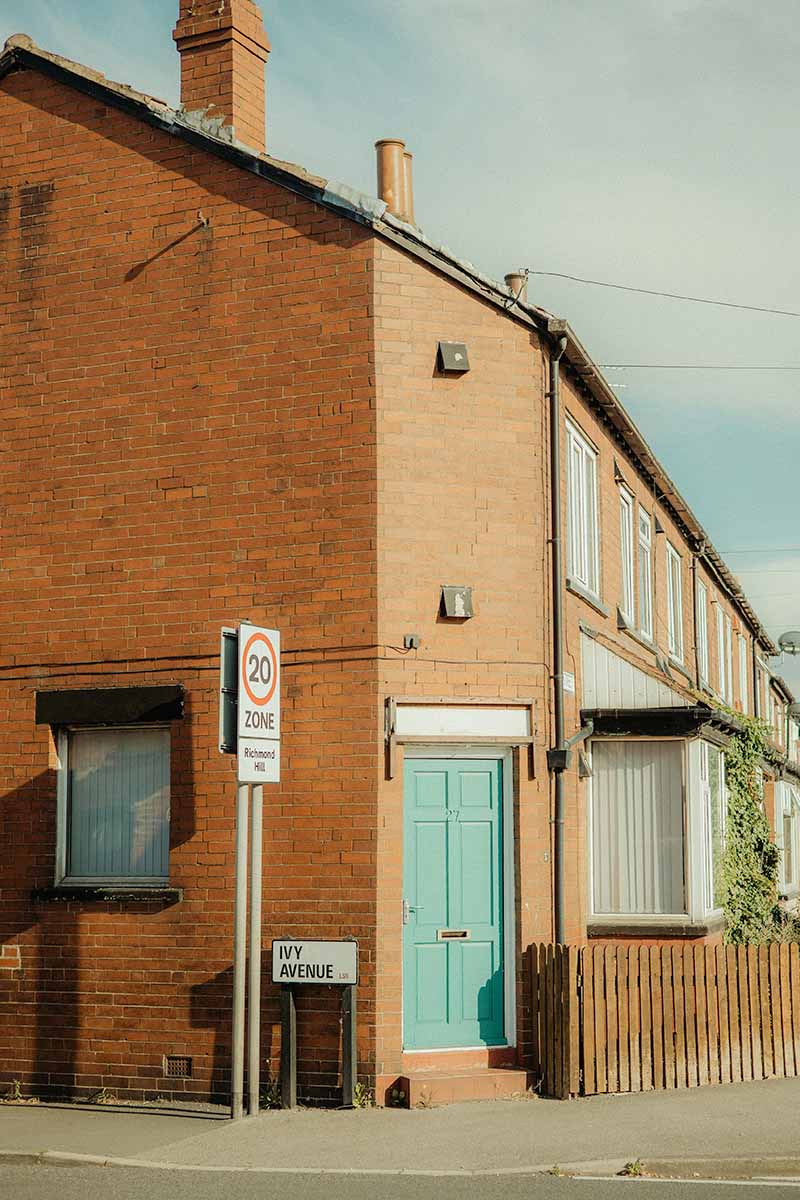Can my ex force me to sell the house?
In England and Wales, an ex-partner can only force the sale of a jointly owned home through a court order. The process and likelihood of success depend on whether you were married or unmarried, the type of joint ownership, whether children are involved, and each person’s financial situation. If you and your ex cannot agree, the courts can decide — but the process can be lengthy, costly, and stressful. This guide explains the law, the options available, and the practical steps you can take, whether you want to sell or stay.
An ex-partner cannot sell a jointly owned property without your consent unless the court orders it.
- Both joint tenants and tenants in common can apply to court for an order to sell.
- Married couples resolve this through the family court under the Matrimonial Causes Act 1973.
- Unmarried couples use a TOLATA 1996 claim in the civil courts.
- If children live in the property, the court may delay a sale — but not always.
- Outcomes can include immediate sale, delayed sale (Mesher order), refusal, or buy-out.
- Mediation is strongly encouraged before going to court.

Types of joint ownership
It's important to understand the ownership type as the rules vary.
Key point: The type of joint ownership doesn’t stop someone applying to force a sale — it only affects how proceeds are divided and what happens on death.
Married vs unmarried couples
Married couples
Property is dealt with as part of the divorce settlement. The court can order a sale, transfer ownership, or delay a sale, often prioritising children’s housing needs. Even if the house is in one person’s name, it is generally considered a matrimonial asset.
If still married but not yet divorced, a spouse can register a Notice of Home Rights with the Land Registry. This protects their ability to stay in the home until financial matters are resolved, even if they are not named on the title.
Unmarried couples
Under TOLATA, either co-owner can apply for an order for sale. The court decides ownership shares and whether to sell now or later.
There is no “common law marriage” — unmarried partners don’t automatically have rights to property they don’t own, though they may claim a beneficial interest if they can prove contributions or agreements.
How children affect forced sale applications
If children live in the property:
- Married couples: Family court often delays sale if it benefits the children, sometimes using a Mesher order (sale postponed until the youngest child turns 18, finishes education, or certain events occur such as remarriage or cohabitation).
- Unmarried couples: Can apply under Schedule 1 of the Children Act 1989 for a similar delayed sale.
Courts also consider whether both parents can afford suitable alternative accommodation. If there is not enough equity to rehouse both parties, a sale may be refused or postponed.
Example scenario: Divorced mother of three facing a forced sale
Sarah, a divorced mother of three children aged 7, 10, and 15, lives in the former family home which she owns jointly with her ex-husband. After the divorce, the court granted Sarah primary custody of the children and allowed her to stay in the home.
Two years later, her ex-husband applied to court under the Matrimonial Causes Act 1973 to force a sale, claiming he needed his share of the equity to buy a new home. Sarah’s solicitor argued that a sale would disrupt the children’s schooling and stability.
The court issued a Mesher order, delaying the sale until the youngest child turns 18 or leaves full-time education. In the meantime:
- Sarah is responsible for the mortgage and upkeep.
- Her ex retains his share of the equity, payable when the sale eventually happens.
- If Sarah remarries or cohabits, the order allows the ex-husband to apply for the sale sooner.
Key takeaway: Even if your ex wants to sell, the court may delay a sale to protect children’s welfare — but they can still retain a financial interest for the future.
The legal basis for forcing a sale
Key laws:
- TOLATA 1996 — for unmarried co-owners; allows applications for sale and sets out factors courts must consider.
- Matrimonial Causes Act 1973 — for divorcing couples; property is part of the financial settlement.
- Children Act 1989, Schedule 1 — allows delays to protect children’s housing needs.
- Married Women’s Property Act 1882 — rarely used today; may establish ownership rights.
What the court considers before ordering a sale
Under TOLATA, Section 15 factors include:
- Original purpose of the property (e.g., family home).
- Welfare of any minors living there.
- Interests of secured creditors like mortgage lenders.
Under the Matrimonial Causes Act, the court considers:
- Children’s welfare first.
- Each party’s needs and resources.
- Length of marriage (including cohabitation before marriage).
- Standard of living during the marriage.
- Financial and non-financial contributions (e.g., childcare, supporting a partner’s career).
- Other assets and debts.
Possible scenarios and likely outcomes
Save time and hassle by selling your home with us
Get a guaranteed cash offer on any property in England and Wales. All you need to do to get started is enter your address below.
Common court outcomes
- Immediate sale: Ordered if both parties need equity urgently and no strong reason exists to delay.
- Deferred sale (Mesher order): Postpones sale until a set event such as a child turning 18.
- Transfer of ownership: One party takes full ownership, sometimes with staged payments.
- Transfer with a charge: The non-occupying party keeps a financial interest, payable when the property is sold later.
- Occupational order: Decides who can live in the home while ownership remains unchanged.
- Exclusion order: In rare cases (e.g., domestic abuse), removes one party’s right to occupy.
- Refusal of sale: Very rare; usually when there is no equity or strong reason to keep the home.
Step-by-step process if your ex won’t agree to sell
- Negotiate — Offer a buy-out or agree a sale timeline.
- Mediation — Strongly encouraged before court.
- Court application:
- Married: Through divorce financial proceedings.
- Unmarried: TOLATA claim in County Court.
- Gather evidence — Deeds, mortgage statements, proof of contributions.
- Court hearing — Judge decides the outcome.
Timescales:
- Negotiated settlement: Weeks to months.
- Court proceedings: 9–18 months if contested.
Risks and costs of forcing a sale
- Legal costs: Thousands to tens of thousands of pounds; loser may pay in TOLATA cases.
- Delays: Contested cases can take over a year.
- Uncertainty: Judges may delay sale or alter equity split.
- Stress: Emotional strain and housing disruption.
Avoiding court where possible
Court is costly and time-consuming. Alternatives include:
- Private agreements — e.g., staged buy-outs or postponed sales.
- Mediation — Using a neutral third party to agree terms.
- Arbitration — Private decision-making without public court proceedings.
Any agreement can be formalised as a consent order, making it legally binding and enforceable.
Additional questions people ask
Can my ex stop me from selling the house?
Yes, unless the court orders a sale.
How long does it take to get a court order to sell?
Contested cases can take a year or more.
What happens if I can’t afford to buy my ex out?
Court may order a sale if no other solution is agreed.
Can my ex live in the house after we split?
Joint owners have a right to occupy unless excluded by court order.
Recap: Can my ex force me to sell the house?
- Court involvement is the only way to force a sale without mutual consent.
- Legal route depends on whether you’re married or unmarried.
- Children’s needs can delay, but rarely prevent, a sale entirely.
- Mediation is often the most cost-effective solution.
Thinking of moving on from a property dispute?
If your relationship breakdown is making it difficult to keep or sell your home, we can help you move on quickly. We offer a direct, stress-free sale without estate agents, chains, or the uncertainty of court disputes.
- Fair market valuation based on your property and location.
- Fast sale without viewings or long negotiations.
- Lower price than market value, but guaranteed speed and certainty.
- Flexible sale timeline to suit your needs.
We’ll manage the process from start to finish so you can focus on your next chapter.
Property owners are choosing Habello for a faster, easier and less stressful way to sell
Sell your home quickly for cash by accepting an offer just below market value. See how we compare to your other options by using the calculator below.
Related guides
Bring yourself up to speed with our property guides.





































































































